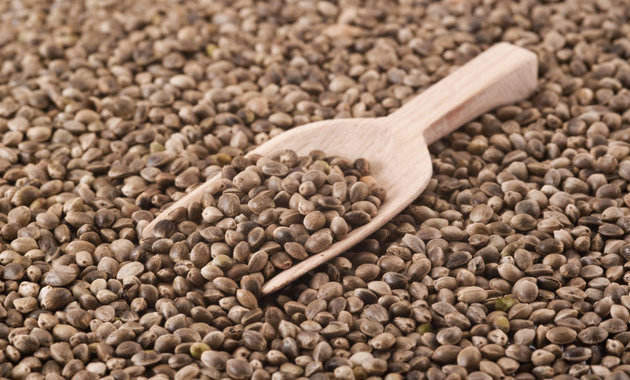Introduction

Hemp seeds, also known by names such as Bhang Seeds or Tukhum Qinab, are the small, nutrient-packed seeds of the hemp plant (Cannabis sativa). These seeds have been used for centuries in various cultures for both their health benefits and culinary uses. Despite their connection to the cannabis family, hemp seeds do not contain significant levels of tetrahydrocannabinol (THC), the psychoactive compound found in marijuana. Instead, they are rich in nutrients, healthy fats, and proteins, making them a popular choice in modern health foods.
Forms of Hemp Seeds
Hemp seeds can be consumed in various forms, and each form offers unique benefits:
- Raw Hemp Seeds: These are the unprocessed seeds, typically consumed as they are or added to salads, smoothies, or yogurts. They are rich in essential fatty acids and proteins.
- Hemp Seed Oil: Extracted from the seeds, hemp seed oil is often used in cooking, skin care, and as a nutritional supplement. It is known for its high content of omega-3 and omega-6 fatty acids, which are important for heart health.
- Hemp Protein Powder: Made from ground hemp seeds, this powder is a popular plant-based protein supplement. It is often used by vegans, vegetarians, and athletes to support muscle growth and recovery.
- Hemp Seed Milk: A dairy-free alternative to cow’s milk, hemp seed milk is made by blending hemp seeds with water. It is an excellent choice for those who are lactose intolerant or following a plant-based diet.
- Hemp Seed Butter: Similar to peanut butter, this spread is made from hemp seeds and can be used on toast, in smoothies, or as a dip for fruits and vegetables.
Benefits of Hemp Seeds
Hemp seeds are packed with an impressive array of nutrients and compounds that can offer numerous health benefits:

- Rich in Protein: Hemp seeds are an excellent source of plant-based protein, containing all nine essential amino acids, making them a complete protein source. This makes them a great choice for vegetarians and vegans looking to meet their protein requirements.
- High in Healthy Fats: Hemp seeds are rich in essential fatty acids, including omega-3 and omega-6 fatty acids, in the ideal ratio for optimal health. These fats support heart health, reduce inflammation, and promote brain function.
- Antioxidant Properties: Hemp seeds contain antioxidants such as vitamin E and phenolic compounds, which can help reduce oxidative stress in the body. This may lower the risk of chronic diseases like cancer and heart disease.
- Supports Digestive Health: Hemp seeds are a good source of fiber, especially when consumed with the hull intact. Fiber is essential for healthy digestion, helping to maintain regular bowel movements and prevent constipation.
- Boosts Heart Health: The combination of healthy fats, antioxidants, and protein found in hemp seeds has been linked to a reduced risk of cardiovascular diseases. They may help lower blood pressure, reduce cholesterol levels, and improve overall heart health.
- Skin Health: Hemp seed oil is often used in skin care products due to its ability to moisturize and nourish the skin. The essential fatty acids and antioxidants in hemp oil may help reduce symptoms of skin conditions such as eczema, acne, and psoriasis.
- Improves Hormonal Balance: Hemp seeds contain gamma-linolenic acid (GLA), an omega-6 fatty acid that has been shown to support hormonal balance and reduce symptoms associated with PMS and menopause.
Side Effects of Hemp Seeds
While hemp seeds offer numerous health benefits, they may also cause certain side effects in some individuals:

- Allergic Reactions: Some people may experience allergic reactions to hemp seeds, especially those who are allergic to other seeds or nuts. Symptoms can include itching, swelling, or digestive discomfort.
- Digestive Issues: Although hemp seeds are high in fiber, consuming too many seeds too quickly can cause digestive issues such as bloating, gas, or diarrhea, especially in individuals with sensitive stomachs.
- Interactions with Medications: Hemp seeds and hemp seed oil may interact with certain medications, particularly blood thinners and anti-inflammatory drugs, due to their high levels of omega-3 fatty acids. It’s important to consult a healthcare provider before incorporating large amounts of hemp seeds into your diet, especially if you’re on medication.
- Excessive Caloric Intake: While hemp seeds are a nutrient-dense food, they are also high in calories due to their fat content. Overconsumption could lead to unwanted weight gain if not consumed in moderation.
- Potential Contaminants: Like all plant-based foods, hemp seeds may be contaminated with pesticides or other harmful substances if they are not organically grown. It’s important to choose organic or responsibly sourced hemp seeds to minimize exposure to these potential contaminants.
This Article is for Basic Information. Contact a professional doctor before using it.
HAKEEM KARAMAT ULLAH
+923090560000




